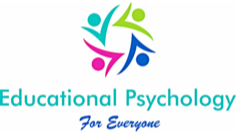Creating better contexts for cognitive development: Relational Frame Theory and experimental psychology

A few years ago I was invited to present at a day long symposium in Chichester for Educational Psychologists and academic psychologists from across West Sussex.
The opportunity seemed ripe for scientist-practitioner sharing of ideas and for us as researchers to learn from the day-to-day practical issues and concerns from those working in the field of assessment of children’s needs in our school systems.
While there were a number of strengths to the event, it was a real eye-opener for me as to just how wide the gap between professional educational psychology in practice, and what our current scientific literature tells us about cognitive and academic development, could actually be.
A research-practice gap
‘Learning styles’
Two of the presentations that day focused on the need for teachers to adapt to the different ‘Learning Styles’ among children in their class while another couple discussed how to increase a child’s ‘working memory’ capacity to enhance a pupil’s chances of success in school.
The notion that children have different Learning Styles in that some children are visual learners, while some are verbal learners, and yet others learn by tactile manipulation is a bad idea that refuses to go away. It has been de-bunked in meta-analysis after meta-analysis and yet, like a bad smell, it persists. There is no scientific validity to this idea, but its appeal seems intuitive and most evidence typically rests on a neat little anecdotal story about an individual child.
Learning requires hard work, whether you are presented material in visual, oral or manually-based forms, and direct instruction and repetitive practice has the biggest impact on likelihood of retention of material and/or skill acquisition.
Working memory capacity
The second big theme of the day, that working memory capacity was very important in enhancing cognitive aptitude to succeeding in key curriculum subjects, is perhaps more understandable in terms of its durability. However, the empirical support is very weak. One key reason might be that it can be very easy to forget that working memory is a metaphor, and while metaphors are wonderful for helping us understand complex ideas, they are not easy for an educational psychologist to actually ‘intervene’ on in a positive way because they can provide an illusion that it’s a concrete ‘thing’ that can be ‘acted’ upon.
This was acknowledged in a recent paper published in the journal Intelligence (McLoughlin, Tyndall, & Pereira, 2020) where we said:
When we try to explain working memory as being made up of a phonological loop and a visuospatial sketchpad, these are metaphors used to label how memory behaves by invoking the properties of concrete stimuli (e.g., “memory, which we cannot observe directly, works like a sketchpad, which we can observe directly”), rather than there being anything physically resembling a loop or sketchpad inside somebody’s head. Similarly, the central executive controlling these components is a metaphor used to fill a gap in knowledge about how resources are allocated to each; there is no observable homunculus operating the gears of the mind, and if there were, we would need to explain how the homunculus is constituted (how does his brain work?), and so on, ad infinitum. However, breaking cognition up into these processes and modules may nonetheless be useful for describing and predicting behaviour.
McLoughlin, Tyndall, & Pereira (2020)
Monica Melby-Lervag and her team have scrutinised the literature on working memory training (the most common form is known as N-back training) as a way to increase fluid intelligence (i.e., your ability to think in abstract concepts, or ‘outside the box’ and see relations, patterns, sequences), and found that there is no evidence yet to support this idea. Interestingly, a new preprint presents a study where the researchers found no impact on intelligence or cognitive aptitude measures after two years of working memory training, which is a pretty telling finding. As noted above, working memory capacity is a useful metaphor for describing and predicting memory performance, but it is difficult to design or even conceptualise an intervention that might succeed in increasing it.
Ideas with little empirical support persist and cost money
My intention here is not to point out that educational psychology is more prone to persisting with ideas that have no scientific or empirical support, than any other areas. Far from it. We see this everywhere in so many different domains of our lives. For example, many organisations employ outside contractors to come in and deliver ‘unconscious bias training’ workshops for employees.
Issues like ‘sexism’ and ‘racism’ are genuine social scourges and ills that need to be addressed. However, while the discussions around it can certainly be useful and should be had, employees are often asked to undertake an ‘unconscious bias test’, usually based on an Implicit Association Test. This test, despite it’s enduring popularity, has been found to be a flawed instrument, and has very little reliability or validity to detect if a staff member holds prejudices against members of other genders or races to their own or if there is a change in levels of these of implicit attitudes or prejudices following the workshop. Yet, organisations are still willing to pay an external consultant or company many thousands of pounds to do this.
Bad ideas can be stubbornly resistant once they get into the public mind because they seem like they are referring to real things.
Your ‘lizard brain’
Another example is that of the ‘triune brain’, that we have three layers in our brain that developed separately over time in evolution. Firstly, our lizard brain is our deepest layer where our survival instincts lie that we supposedly inherited from reptiles; the limbic system is the middle layer and represents our emotional ‘mammalian’ brain; while the newest layer is the neorcortex which houses our rational part of our brain. I have been in a few different contexts recently with meetings with medical and social care professionals (e.g., paediatricians) where the triune brain diagram was used to explain how our reptilian or lizard brain can hijack our emotional brain, and that our emotional brain can hijack our rational brain when it comes to making decisions or how we process events that have occurred or are happening in our lives.
Yet, as Lisa Feldman Barret elegantly notes in her excellent new book, ‘Seven and a half myths about the brain’,
The triune brain is one of the most successful and widespread errors in all of science…By the 1990s, experts had completely rejected the idea of a three-layered brain. It simply didn’t hold up when they analysed neurons with more sophisticated tools….scientists have learned that evolution does not add layers to brain anatomy like geological layers of sedimentary rock….it turns out that as brains become larger over evolutionary time, they reorganise (pp. 15 -18).
Barrett, 2020, pp. 15-18
Yet, highly qualified professionals still use it. It probably, like working memory, has utility as a metaphor that can be helpful to practitioners in trying to explain emotional and behavioural difficulties to parents or to children themselves even if there is no scientific basis for it, per se.
Back now to the main purpose of this post: Given all this, what can we work or act upon in interventions as psychologists in educational contexts?
‘Intelligence’ as a set of behaviours: relational frame theory
One possible approach is to view cognitive aptitude, or intelligence, as a set of behaviours that can be trained or enhanced with repeated practice and subsequent generalisation of cognitive skills. This is the perspective taken by psychologists who conduct research guided by a theory of language and cognition called Relational Frame Theory.
SMART (Strengthening your Mental Abilities with Relational Training) is an online programme based on Relational Frame Theory (RFT) established by Bryan Roche and Sarah Cassidy at Maynooth University in Ireland. It is based on the premise that behaviours that are considered ‘intelligent’ are instances of derived relational responding, or relational frames (e.g., same, opposite, different, more than/less than, here-there, now-then, etc.), and this behaviour is shaped in interactions with the environment, primarily by parents and caregivers initially.
Standardised intelligence tests (e.g., Wechsler Scales such as WISC and WAIS) and tests of cognitive ability or aptitude are quite similar in that items generally require participants to observe or derive relations among stimuli (e.g., given a set of matrix images, choose the appropriate one to complete a particular sequence or pattern; Black is to White as Night is to ’blank’).
In mainstream psychology, it is conventional ‘wisdom’ that IQ or Cognitive Ability is generally something fixed or static and something that cannot be changed. It is often viewed as an inborn and invariant characteristic of a person, and a construct that strongly predicts educational achievement (e.g., GCSE test performance) and future life success. As behaviour scientists we believe that intelligence is behaviour or that intelligent behaviour can be viewed as situated acts in context. Thus, like all behaviours, we believe that intelligence can be reinforced, shaped, and altered through interactions with the environment.
RFT would propose that those who score high on intelligence tests already have a very well developed relational operant repertoire, or in other words, they’re highly fluent in derived relational responding. Moreover, those who score low on such IQ tests have a derived relational responding skillset that can be enhanced or improved. The SMART programme, based on RFT principles, trains participants with SAME/DIFFERENT and MORE/LESS relations over a series of 55 stages. Importantly, each trial presents a unique set of stimuli so what is learned over the course of the programme is a derived or generalised cognitive-behavioural skill.
Research studies exploring the SMART programme
Early research by Sarah Cassidy, Bryan Roche, Dylan Colbert, and colleagues suggests that engaging in this relational training programme significantly increased scores on Wechsler intelligence tests in teenage pupils of one standard deviation or more, which is substantially higher than any other cognitive or brain-training programme in the market. In a recent series of studies in primary and secondary schools in Ireland led by a University of Chichester team of Shane McLoughlin (now at Liverpool John Moores University) and Antonina Pereira, we found that SMART training led to significant increases in fluid intelligence (i.e., non-verbal intelligence) compared to control groups who engaged with Chess or Scratch computer programming that the schools already included in their curriculum.
Promisingly, there appeared to be evidence of far-transfer effects of SMART training to reading test scores in primary school children. This is exciting, as thus far, evidence for far-transfer or generalisation of effects to other domains beyond that of the programme itself (e.g., working memory training for maths test performance) has proved rather elusive. Importantly, a pre-registered systematic review and meta-analysis of published SMART studies, using Cochrane best practice guidelines led by Richard May at the University of South Wales suggests that a moderate SMART training effect holds for non-verbal intelligence/fluid intelligence.
I am also aware of current and future larger scale roll outs of the SMART programme in the school network in Bristol, randomised controlled trials in Ghent in Belgium, and also with adults with conditions such as multiple sclerosis in Lincoln, and Alzheimer’s in Sicily in Italy, so the signs for the potential for more independent scientific validations of this cognitive-behavioural intervention across different contexts are encouraging.
‘Intelligence’ is a key concern for EPs
One could argue, why would an educational psychologist be interested in this as ‘intelligence’ is not a key concern of theirs? However, I have been part of city council co-production meetings where an intelligence test assessment by an educational psychologist was a key factor in deciding whether a child would qualify to receive an educational health and care plan (EHCP) support for their education at school. Intelligence testing seems a key part of an educational psychologist’s toolkit and assessment remit, and has the very real potential to influence a child’s future prospects and allocation of resources to support their educational needs.
I would say that, as a behavioural psychologist, I am not overly interested in intelligence or IQ as a fixed construct (even though I acknowledge that many are), or its legitimacy as a construct per se, but that I am interested in behaviours that are considered intelligent and that can help make school and academics more manageable and more fulfilling to children of varying levels of ability. It is about using our skills and training as scientists and psychologists to help create better environments and provide more opportunities to succeed for the children we work with and for future generations.
There is certainly much more involved in a holistic assessment of a child and their needs (e,g., emotional, behavioural challenges, motivation), but as Albert Bandura and others have stated many times, children don’t tend to do well at things that they think they are bad or weak at. It will be interesting to see if interventions like SMART can transfer to raising self-efficacy beliefs in pupils in core curriculum subjects such as Maths and English and Science.
Collaboration across disciplines
The underpinning theory for SMART is relevant as McLoughlin et al. (2020) argued that relational reasoning is a core cognitive skill and that this is theoretically compatible with contemporary Education (e.g., Patricia Alexander’s work published in the British Journal of Educational Psychology), Cognitive Science Linguistics, Neuroscience, and Evolution Science.
As Sarah Cassidy puts it so well from an educational psychology perspective there…
…was a frustration that in my work as an educational psychologist in Ireland, all we seemed to be doing was diagnosing learning and emotional/behavioural difficulties….We never seemed to be doing any interventions. I wondered why we were doing assessments when we weren’t then following those assessments up with meaningful and effective interventions. Now don’t get me wrong, assessment is a necessary first step in determining how best to devise any good support plans and I’m a staunch supporter of early assessment and intervention. Who isn’t…. But I was struck by the fact that my job included going into schools, meeting parents and teachers, conducting an assessment with a child, and then making a list of recommendations for how parents and teachers could best support any identified learning or emotional/behavioural difficulties uncovered. But what good is this list if it isn’t followed by meaningful and effective action?
It seems possible that with further research and cross-collaborative partnerships between practising educational psychologists and experimental psychologists that we can put interventions like the SMART programme to the test to see if it has genuine and long-lasting positive effects for children and adolescents in educational settings. Furthermore, with cross-fertilisation of ideas in these scientific collaborations, we can test for outcomes that are meaningful and desirable for teachers, parents, and pupils alike.
It is still early days, and more rigorous examinations and tests of the SMART programme (and Relational Frame Theory that underpins it) are needed, and indeed as noted above are coming on stream, but there is real promise that a conversation with educational psychologists can help direct us to where we need to go, and that can help bring educational psychologists back into the realm at the forefront of intervention rather than pure assessment alone.
Thus, there is an onus on us in the academic research community to make greater efforts to make contact with and engage more proactively with practising professional educational psychologists and also for educational psychologists to try and engage with the latest scholarship and scientific developments (despite understandable challenges of heavy workloads, and long client-waiting lists). There is so much great work we could do together, to help create better environments with more scientifically-grounded and theoretically plausible evidence-based interventions.
References & further reading
Alexander, P. A. (2019). Individual differences in college-age learners: The importance of relational reasoning for learning and assessment in higher education. British Journal of Educational Psychology, 89(3), 416–428. https://doi.org/10.1111/bjep.12264
Cassidy, S., Roche, B., Colbert, D., Stewart, I., & Grey, I. M. (2016). A relational frame skills training intervention to increase general intelligence and scholastic aptitude. Learning and Individual Differences, 47, 222–235. https://doi.org/10.1016/j.lindif.2016.03.001 1041-6080
Cassidy, S., Roche, B., & Hayes, S. C. (2011). A Relational Frame Training intervention to raise intelligence quotients: a pilot study. The Psychological Record, 61(2), 1–26. https://doi.org/https://doi.org/10.1007/BF03395755
Cassidy, S., Roche, B., & O’Hora, D. (2010). Relational Frame Theory and human intelligence. European Journal of Behaviour Analysis, 11(1), 37–51.
Cobb, M. (2020). The idea of the brain. Profile books.
Colbert, D., Tyndall, I., Roche, B., & Cassidy, S. (2018). Can SMART Training Really Increase Intelligence? A Replication Study. Journal of Behavioural Education, 27(4), 509–531. https://doi.org/10.1007/s10864-018-9302-2
Deary, I. J., Strand, S., Smith, P., & Fernandes, C. (2007). Intelligence and educational achievement. Intelligence, 35(1), 13–21. https://doi.org/10.1016/j.intell.2006.02.001
Everaert, M. B. H., Huybregts, M. A. C., Berwick, R. C., Chomsky, N., Tattersall, I., Moro, A., & Bolhuis, J. J. (2017). What is language and how could it have evolved? Trends in Cognitive Sciences, 21(8), 569–571. https://doi.org/10.1016/j.tics.2017.05.007
Feldman Barrett, L. (2021). Seven and a half myths about the brain. Picador.
Goldwater, M. B., Don, H. J., Krusche, M. J. F., & Livesey, E. J. (2018). Relational discovery in category learning. Journal of Experimental Psychology: General, 147(1), 1–35. https://doi.org/10.1037/xge0000387
Goldwater, M. B., & Schalk, L. (2016). Relational categories as a bridge between cognitive and educational research. Psychological Bulletin, 142(7), 729–757. https://doi.org/10.1037/bul0000043
Halford, G. S., Bain, J. D., Maybery, M. T., & Andrews, G. (1998). Induction of relational schemas: Common processes in reasoning and complex learning. Cognitive Psychology, 35(3), 201–245. https://doi.org/10.1006/cogp.1998.0679
Halford, G. S., Wilson, W. H., & Phillips, S. (2010). Relational knowledge: The foundation of higher cognition. Trends in Cognitive Sciences, 14(11), 497–505. https://doi.org/10.1016/j.tics.2010.08.005
Hayes, S. C., Barnes-Holmes, D., & Roche, B. (2001). Relational Frame Theory: A post-Skinnerian account of human language and cognition. Plenum Press.
Hayes, J., & Stewart, I. (2016). Comparing the effects of derived relational training and computer coding on intellectual potential in school-age children. The British Journal of Educational Psychology, 86(3), 397–411. https://doi.org/10.1111/bjep.12114
McLoughlin, S., Tyndall, I., & Pereira, A. (2020). Convergence of multiple fields on a relational reasoning approach to cognition. Intelligence, 83(Nov-Dec), 101491. https://doi.org/10.1016/j.intell.2020.101491
McLoughlin, S., Tyndall, I., & Pereira, A. (2020b). Relational operant skills training increases standardized matrices scores in adolescents: A stratified active-controlled trial. Journal of Behavioural Education. https://doi.org/10.1007/s10864-020-09399-x
McLoughlin, S., Tyndall, I., Pereira, A., & Mulhern, T. (2021). Non-verbal IQ gains from relational operant training explain cariance in educational attainment: An active-controlled feasibility study. Journal of Cognitive Enhancement, 5(1), 35–50.
Melby-Lervåg, M., Redick, T. S., & Hulme, C. (2016). Working memory training does not improve performance on measures of intelligence or other measures of “far transfer” evidence from a meta-analytic review. Perspectives on Psychological Science, 11(4), 512–534. https://doi.org/10.1177/1745691616635612
Newton, P. M., & Miah, M. (2017). Evidennce-based higher education – Is the ‘Learning Styles’ myth important. Frontiers in Psychology, 8. 10.3389/fpsyg.2017.00444
Sala, G., & Gobet, F. (2017). Working memory training in typically developing children: A meta-analysis of the available evidence. Developmental Psychology, 53(4), 671–685. https://doi.org/10.1037/dev0000265
Sala, G., & Gobet, F. (2019). Cognitive training does not enhance general cognition. Trends in Cognitive Sciences, 23(1), 9–20. https://doi.org/10.1016/j.tics.2018.10.004
Sala, G., Tatlidil, K. S., & Gobet, F. (2018). Video game training does not enhance cognitive ability: A comprehensive meta-analytic investigation. Psychological Bulletin, 144(2), 111–139. https://doi.org/10.1037/bul0000139




[…] A new article by Dr. Ian Tyndall of the University of Chichester outlines why the Relational Frame Theory-based SMART approach is our only real promise of a tool to enhance intellectual ability. See the article here. […]